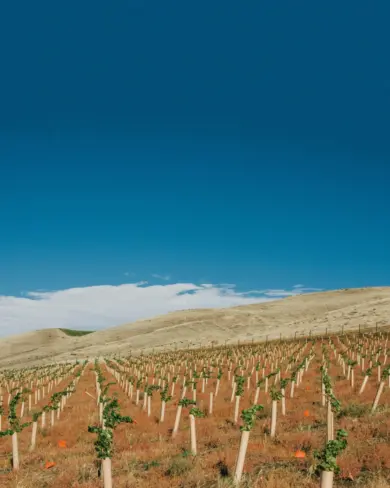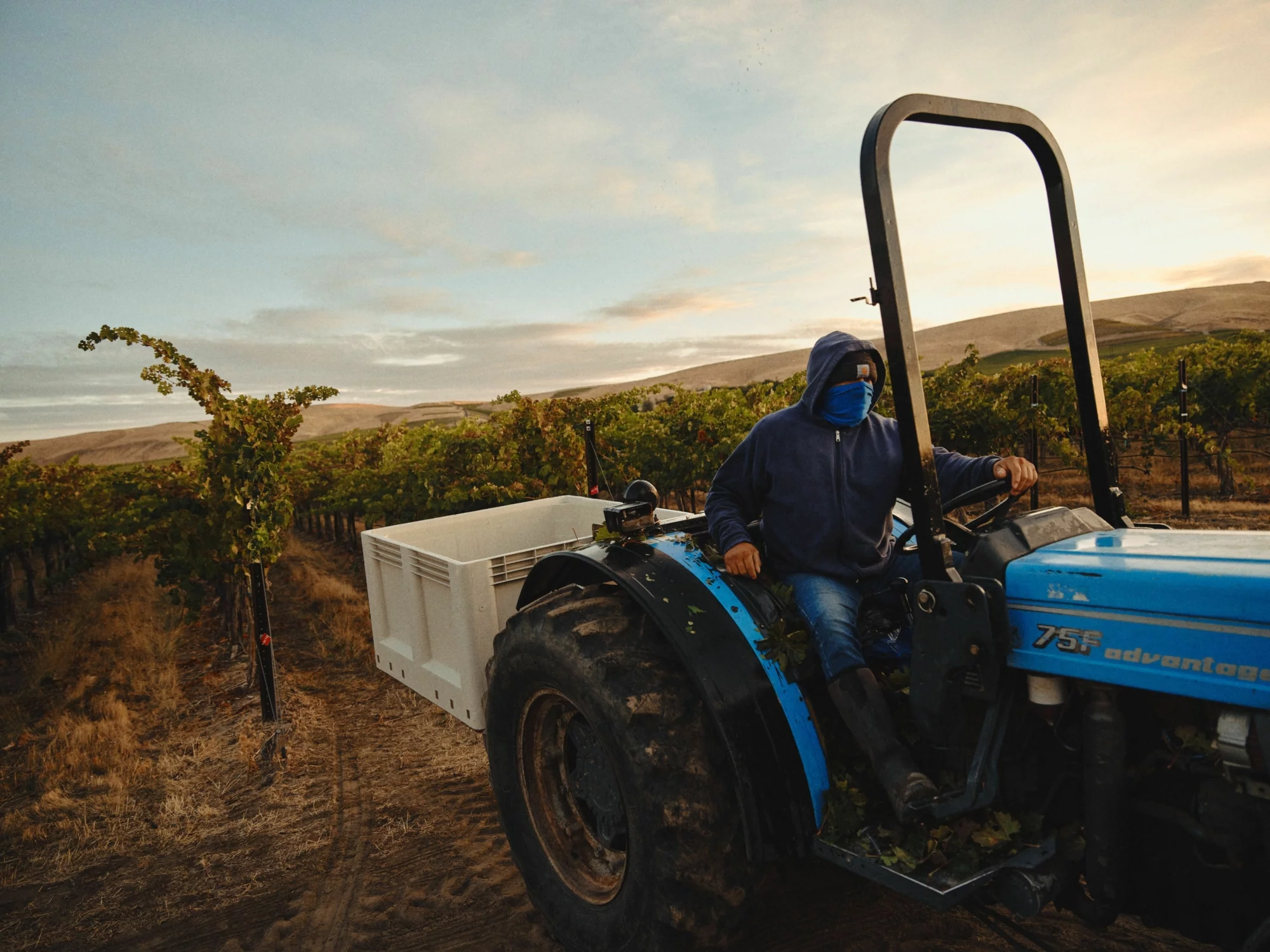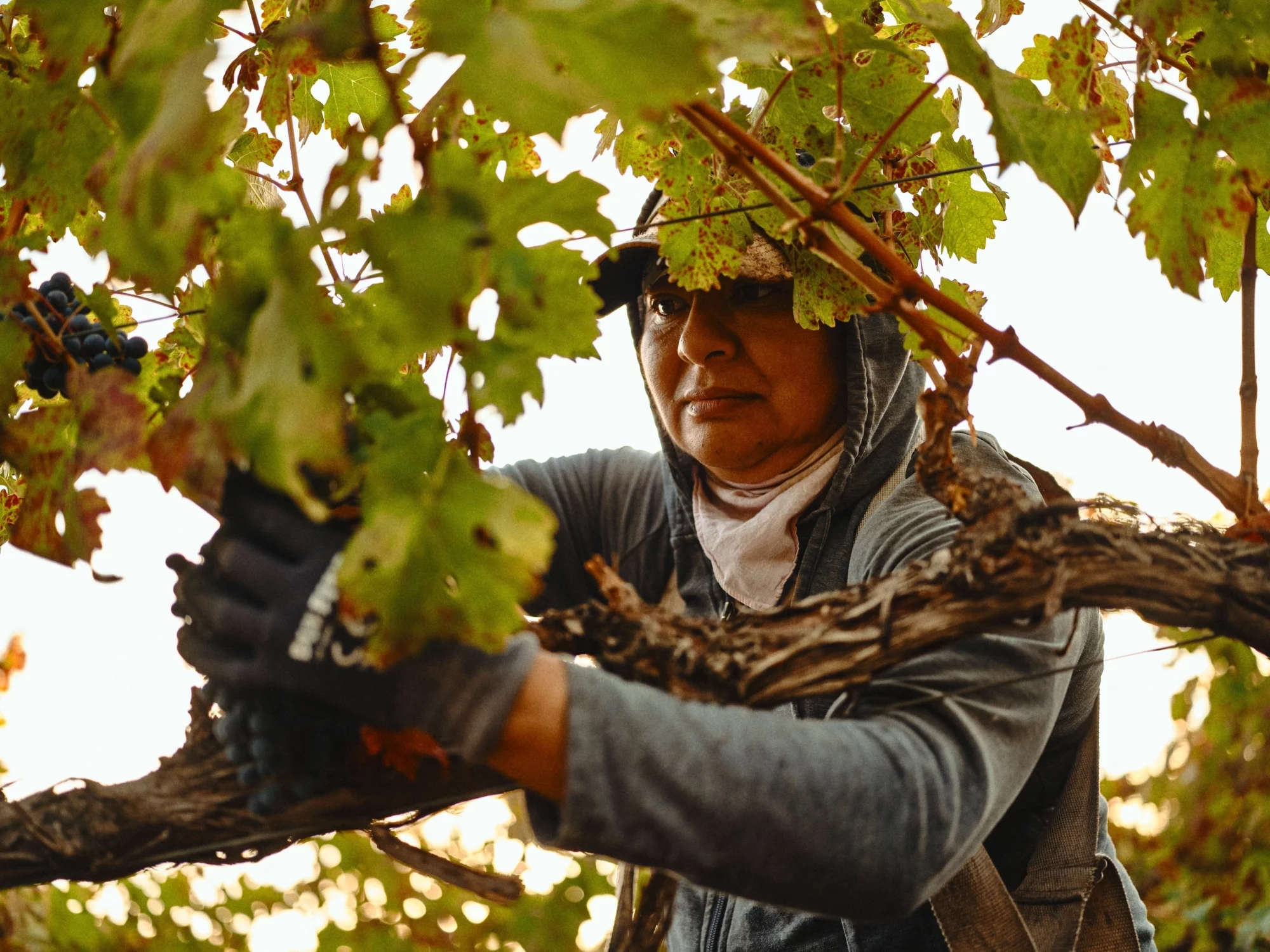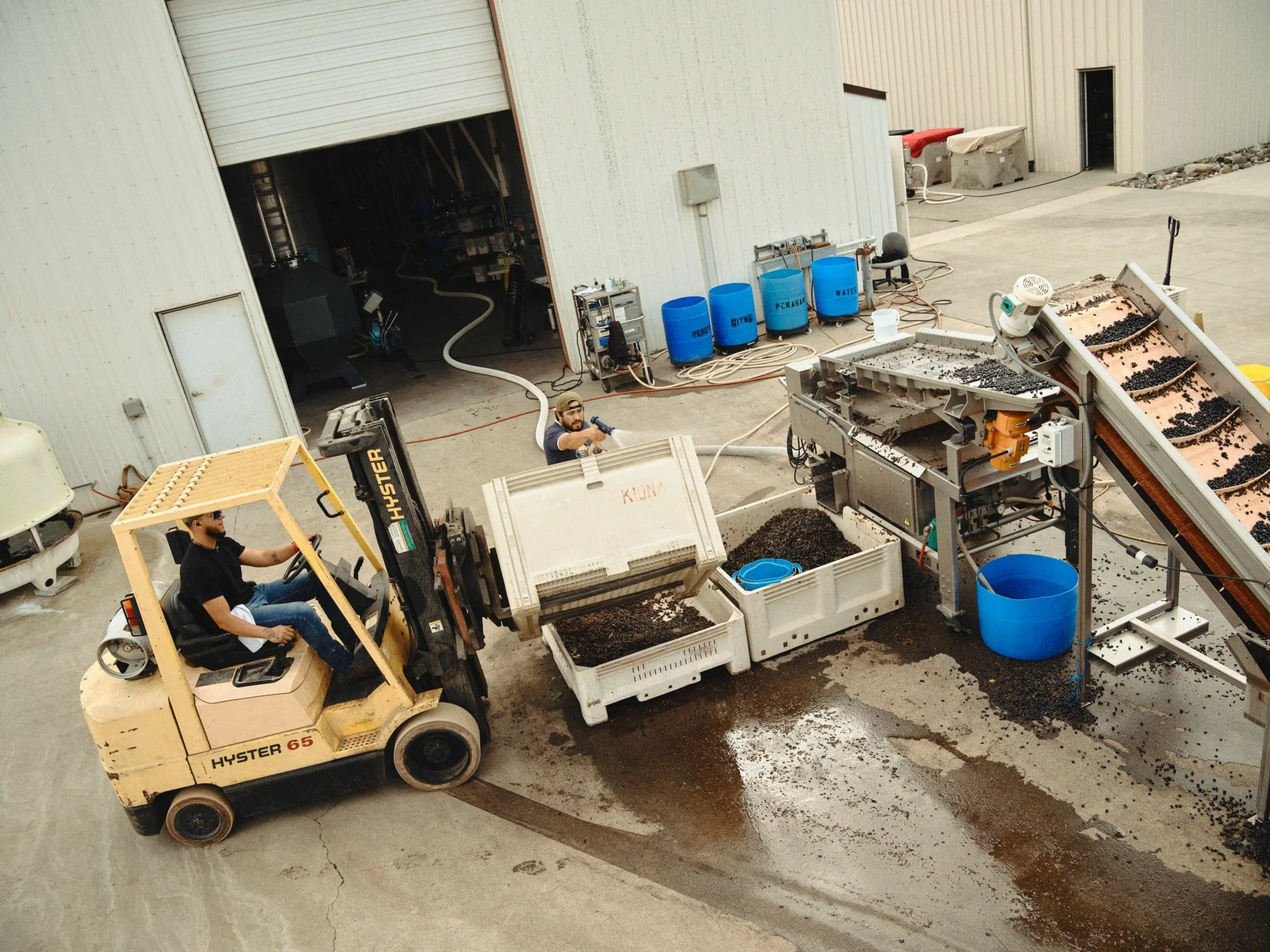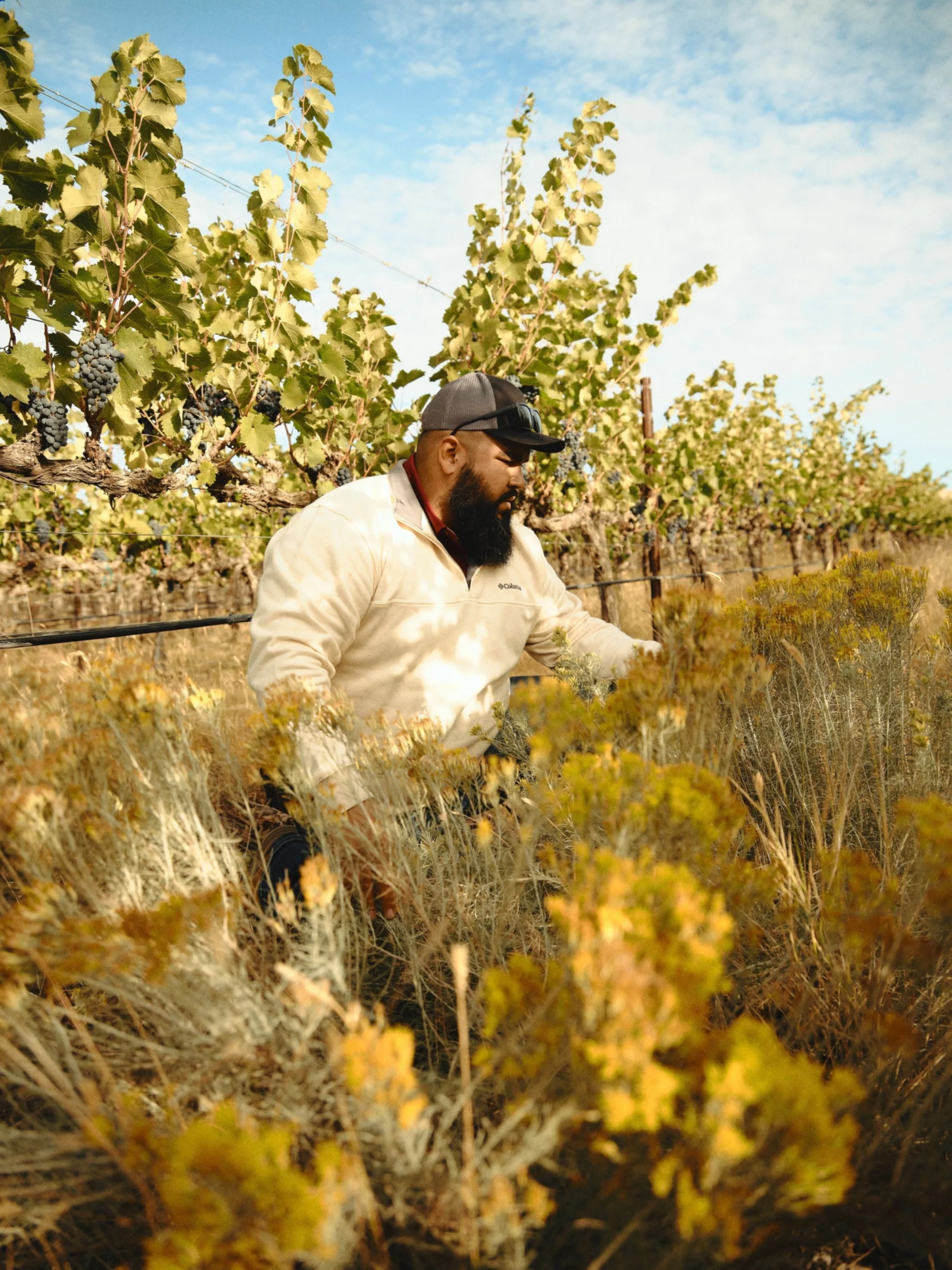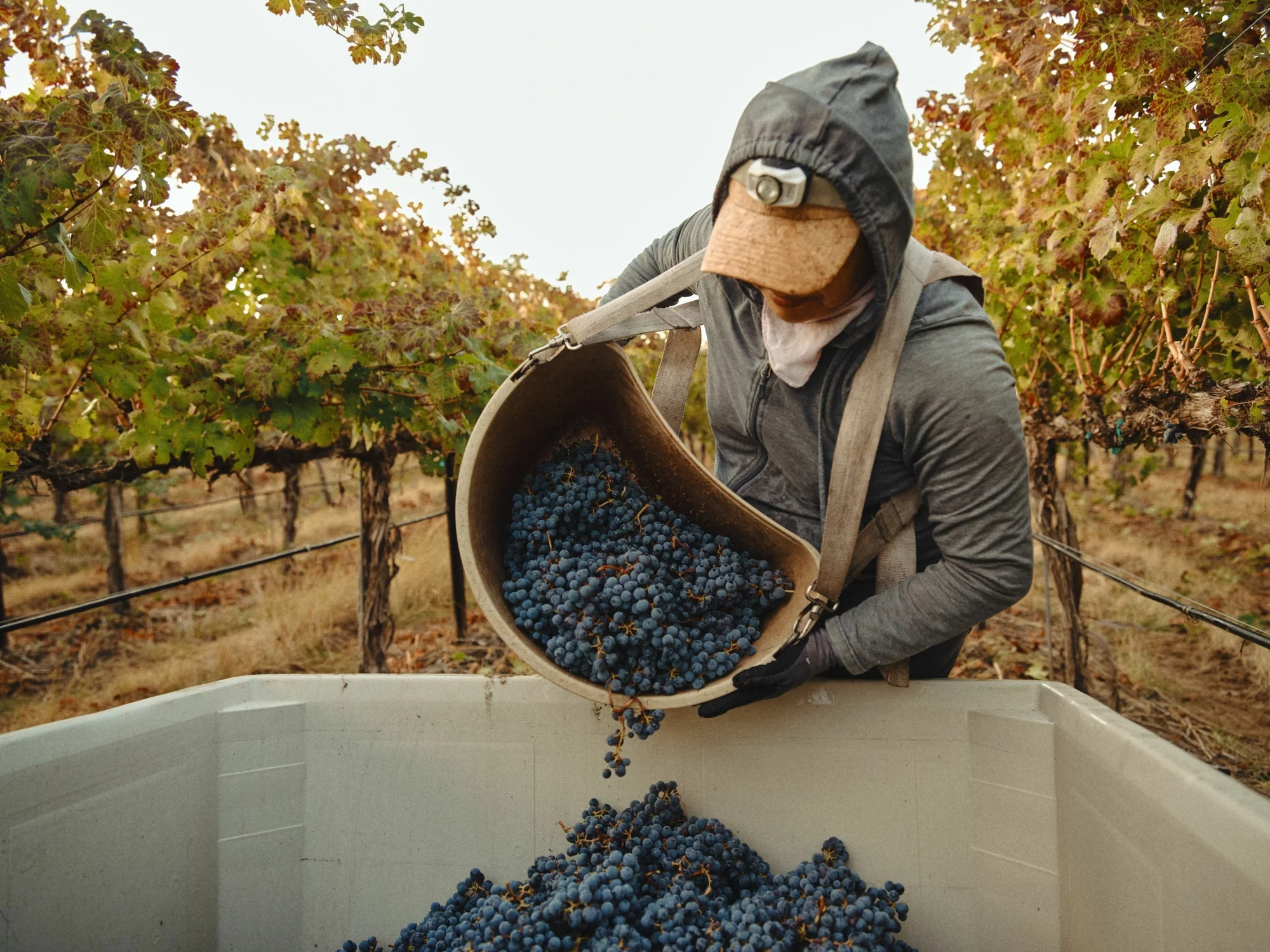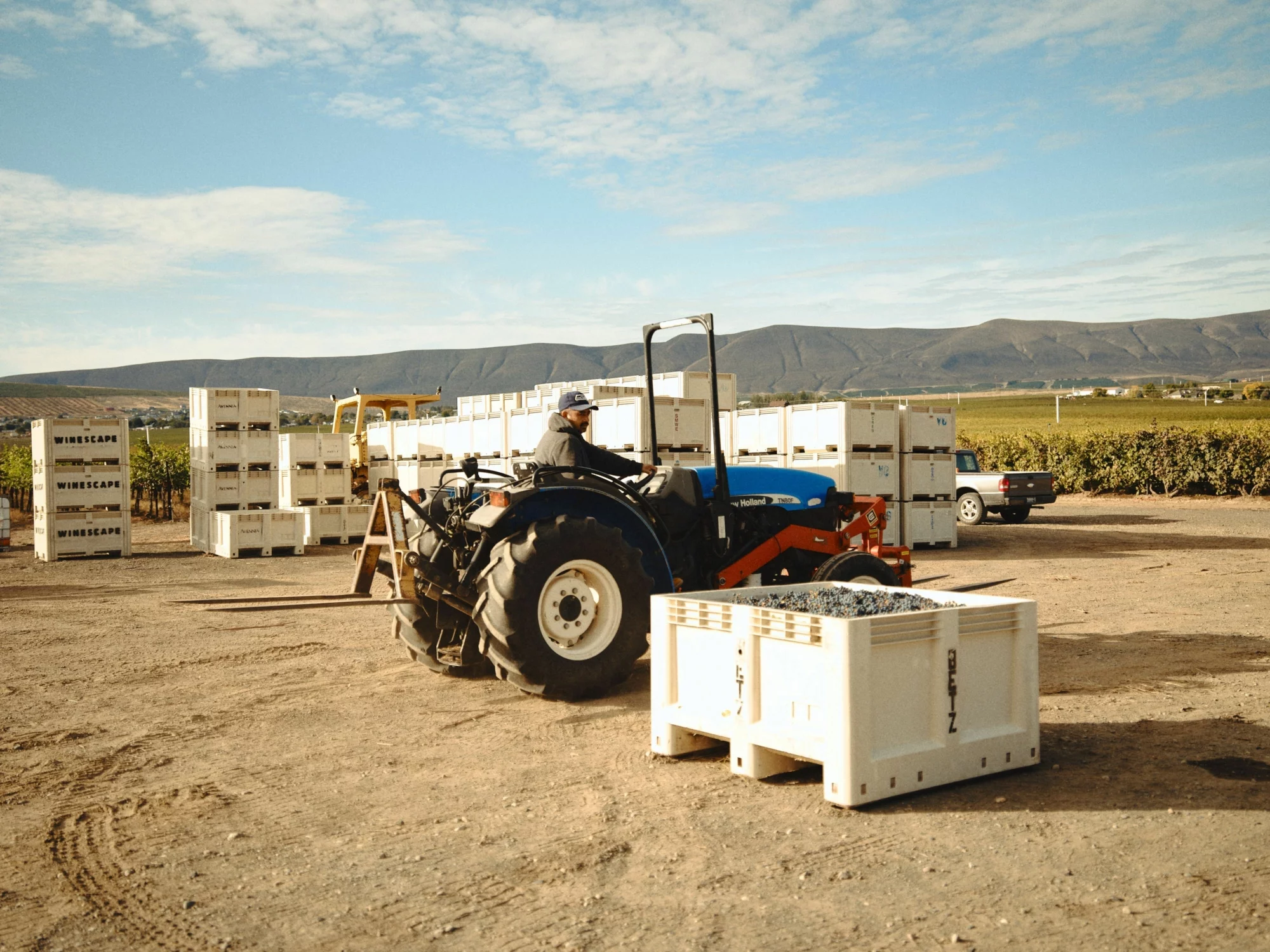Grape vines are very susceptible to temperature changes on a day-to-day basis. In the summer, grapes ripen at temperatures below the mid-90s. As the temperature continues to rise above that threshold, sugar development is arrested. Evaporation from the plant's leaves (called transpiration) grows at an exponential rate until the plant is unable to keep up with the loss of water. This triggers the vine to start metabolizing the acids in the grapes as a survival mechanism. Grapes grown in other areas of the world are oftentimes unable to compensate properly because the temperatures remain too high over a 24-hour cycle.
Red Mountain, on the other hand, is able to reduce the acid loss that occurs due to rapid transpiration. Our peak temperatures occur around 4 p.m. and cool off rapidly during the night, oftentimes resulting in a 40-50 degree swing between peak temperatures. As a result of this temperature swing (called diurnal shift), Red Mountain grapes are high in both sugar and acidity, an exceedingly rare and desirable trait for wine production.
